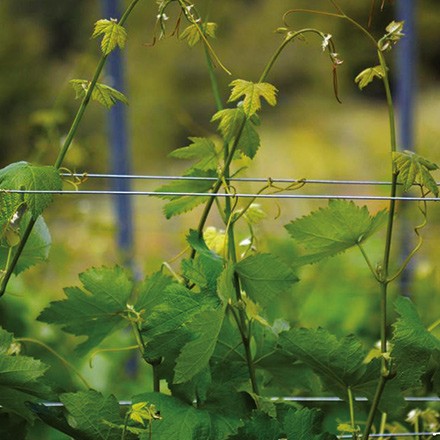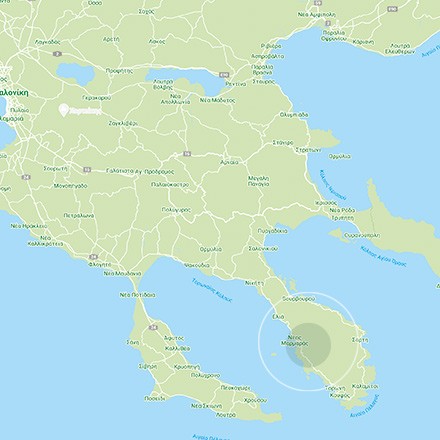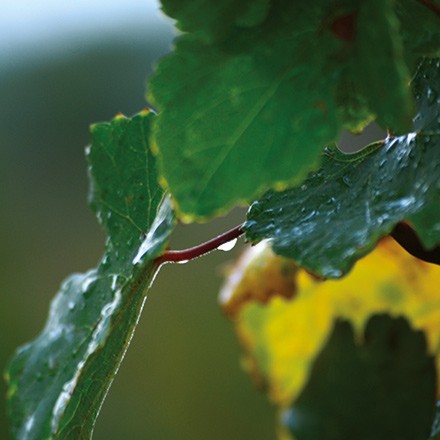The Protected Designation of Origin wine production zone Slopes of Meliton was recognized in 1982. It refers to white and red wines produced from grapes grown on the slopes of Mount Meliton in N. Marmaras, in the southern part of the Sithonia peninsula of Chalkidiki.
The vineyards are located at an altitude of more than 100m, are not irrigated, their yield does not exceed 800 kg of grapes per acre and are vinified with know-how and care by experienced oenologists within the Estate’s facilities.
The daily temperature in the vineyards is balanced by the altitude and the sea increases by 0.5 to 0.9°C per 100m, creating favorable mesoclimates for the adaptation and the cultivation of a wider range of grape varieties that thrive on the south-western slopes at an altitude of 200-300m.
Thus, the high-quality white wines we find are produced from Assyrtiko, Athiri, Malagouzia, Sauvignon Blanc, Viognier and Roditis. Malagouzia in particular, which is one of the most ancient white varieties in the world, had almost disappeared and was revived at the Porto Carras Estate. Among the red wines, the famous ruby Limnio, the oldest variety in the world, predominates, accompanied by the cosmopolitan varieties Cabernet Saunignon, Cabernet Franc, Merlot, Cinsault and Syrah, which at an altitude of 300-400m are wonderfully adapted to the cool north-eastern slopes of the region.
Today Domaine Porto Carras comprises the largest single organic vineyard in Greece and one of the largest in Europe, covering 3,000 hectares. It has won more than 150 awards in internationally renowned competitions and exports its products to more than 25 countries.






